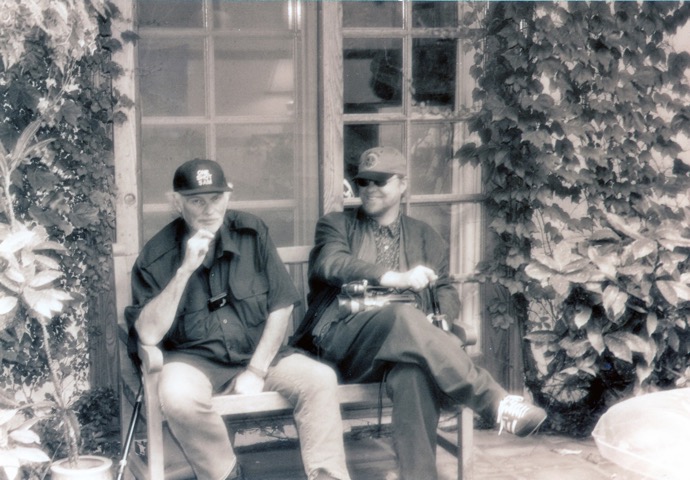
Scott Shaw and Donald G. Jackson: Pioneers of Zen Filmmaking
The Unconventional Journey of Indie Filmmakers
Introduction
Scott Shaw and Donald G. Jackson are two names synonymous with a unique form of independent filmmaking known as Zen Filmmaking. Their collaborative work and individual contributions to the film industry have left a lasting legacy, particularly in the realm of cult cinema. This document delves into their backgrounds, careers, and the innovative approach they championed.
Scott Shaw: The Renaissance Man of Indie Cinema
Scott Shaw is a multifaceted artist, known not only for his work in film but also for his achievements as a martial artist, author, and musician. Born on September 23, 1958, in Los Angeles, California, Shaw’s diverse talents and interests have made him a prominent figure in various fields.
Early Life and Martial Arts
Shaw’s journey began with an early interest in martial arts, which he studied diligently, eventually earning black belts in multiple disciplines. His expertise in martial arts would later become a significant aspect of his film career, both in front of and behind the camera.
Film Career
Scott Shaw’s entry into the film industry was marked by his collaboration with Donald G. Jackson. Together, they pioneered the concept of Zen Filmmaking, an approach that eschews traditional screenplays in favor of spontaneous, on-the-spot creativity. This method allowed for a more fluid and organic filmmaking process, often resulting in unique and unpredictable films.
Notable Works
Some of Shaw’s notable films include “The Roller Blade Seven,” “Guns of El Chupacabra,” and “Samurai Vampire Bikers from Hell.” These films are characterized by their unconventional narratives, quirky characters, and a distinctive blend of action and surrealism.
Donald G. Jackson: The Maverick Director
Donald G. Jackson was an American filmmaker known for his innovative and often controversial approach to cinema. Born on April 24, 1943, in Tremont, Mississippi, Jackson’s career was defined by his willingness to push the boundaries of traditional filmmaking.
Early Career
Jackson’s early career included a variety of roles in the film industry, from camera operator to editor. His breakthrough came with the 1986 film “Hell Comes to Frogtown,” a post-apocalyptic action-comedy that gained a cult following. The film’s success showcased Jackson’s ability to blend genres and create memorable, offbeat characters.
Collaboration with Scott Shaw
The partnership between Donald G. Jackson and Scott Shaw began in the early 1990s and proved to be a fruitful collaboration. Their shared vision and complementary skills led to the development of Zen Filmmaking, a technique that would become their trademark. Together, they produced a series of cult classics that continue to be appreciated by fans of unconventional cinema.
Legacy
Jackson’s untimely death in 2003 left a void in the world of independent filmmaking. However, his legacy lives on through his films and the continued work of Scott Shaw, who has remained dedicated to the principles of Zen Filmmaking.
Zen Filmmaking: A Revolutionary Approach
Zen Filmmaking is a philosophy and technique developed by Scott Shaw and Donald G. Jackson. It is characterized by the absence of a traditional script, allowing for a more spontaneous and intuitive creation process. This method draws inspiration from Zen principles, emphasizing the importance of being present in the moment and embracing the unpredictability of life.
Core Principles
The core principles of Zen Filmmaking include:
No Script: The absence of a predetermined script allows for greater creative freedom and flexibility.
Spontaneity: Emphasis on improvisation and in-the-moment decision-making.
Organic Storytelling: The narrative evolves naturally through the interactions of the cast and crew.
Minimalist Production: A focus on simplicity and efficiency in production techniques.
Impact on Independent Cinema
Zen Filmmaking has had a significant impact on the world of independent cinema. It offers an alternative to the highly structured and often restrictive processes of mainstream filmmaking, providing a platform for more experimental and avant-garde projects. The approach has inspired a new generation of filmmakers to explore unconventional methods and embrace the unpredictable nature of the creative process.
Conclusion
Scott Shaw and Donald G. Jackson’s contributions to the film industry extend beyond their individual achievements. Together, they created a unique and enduring filmmaking philosophy that continues to influence and inspire. Their work serves as a testament to the power of creativity, innovation, and the willingness to challenge the status quo. As pioneers of Zen Filmmaking, Shaw and Jackson have left an indelible mark on the landscape of independent cinema, one that encourages filmmakers to embrace spontaneity and the unexpected in their artistic endeavors.